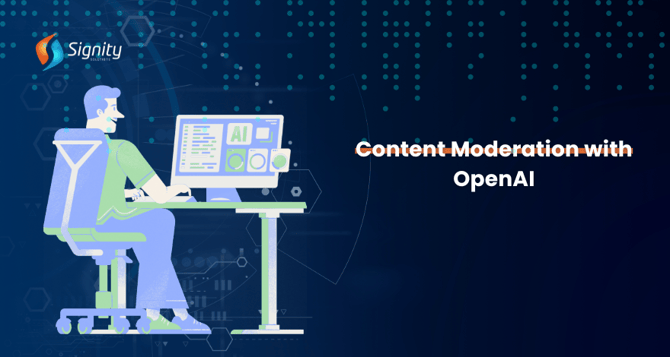Addressing Ethical Challenges in Content Moderation with OpenAI
Delving into the ethical nuances of content moderation with OpenAI, we confront issues of bias, censorship, privacy, and transparency. As we integrate AI responsibly, our goal is to harmonize moderation with the preservation of free expression. Through transparent practices and mechanisms for accountability, we endeavor to cultivate a more constructive and inclusive online dialogue

Content moderation plays a pivotal role in upholding a safe and healthy online space. OpenAI, at the forefront of artificial intelligence research, has introduced formidable models such as GPT-3 for content moderation purposes. However, the integration of AI-driven content moderation raises significant ethical considerations. This piece delves into these concerns and offers snippets of code for constructing a rudimentary content moderation system using OpenAI's API.
Ethical Dilemmas in Content Moderation
1. Bias and Equity
A major ethical quandary in content moderation revolves around the potential bias embedded in AI models. Models like GPT-3 are trained on extensive datasets sourced from the internet, which might contain biased or prejudiced content. Consequently, there's a risk of AI models making biased judgments during content moderation. To mitigate this risk, it's imperative to rigorously assess and test the model's performance to minimize bias.
2. Censorship vs. Freedom of Expression
Content moderation entails making decisions regarding permissible and prohibited content. Striking a balance between eliminating harmful content and safeguarding freedom of expression poses a formidable ethical challenge. Excessively stringent moderation can suppress free speech, whereas lenient moderation can permit harmful content to proliferate. AI models should be developed with explicit guidelines and human oversight to ensure fair and consistent content moderation.
3. Privacy and Data Protection
Moderation systems necessitate access to potentially sensitive user-generated content. Safeguarding the privacy and data security of users is paramount. Measures should be implemented to anonymize and safeguard user data, alongside establishing transparent policies concerning data usage.
4. Transparency and Accountability
AI-powered content moderation systems should uphold transparency regarding their decision-making processes. Users ought to comprehend why their content was moderated and have avenues for recourse. This applies to all moderation systems, whether it’s an AI content moderation tool or a human-led process.
Moreover, mechanisms should be in place to hold both the AI model and human moderators accountable for their actions.
Constructing a Basic Content Moderation System with OpenAI
Below, we present a basic code snippet for implementing content moderation utilizing OpenAI's GPT-3 API in Python. It's important to note that this is a simplified example, and a production-level system would necessitate greater sophistication.
import openai# Set your OpenAI API keyapi_key = 'YOUR_API_KEY'def moderate_content(content): openai.api_key = api_key # Define a moderation prompt prompt = f"This content moderation request is for the following text: {content}" # Use the OpenAI API to generate a moderation decision response = openai.Completion.create( engine="text-davinci-002", prompt=prompt, max_tokens=1, # Limit the response to one token temperature=0, # Set temperature to 0 for deterministic output stop=None # Don't set any stop tokens ) # Extract the AI's decision decision = response.choices[0].text.strip() return decision# Example usagecontent_to_moderate = "Some potentially harmful content..."moderation_decision = moderate_content(content_to_moderate)print(f"Moderation decision: {moderation_decision}") |
In this code snippet, OpenAI's GPT-3 API is utilized to moderate content by furnishing a prompt that acquaints the AI with the moderation context. The AI then generates a moderation decision, which can subsequently be reviewed and acted upon by human moderators.
In Conclusion
Content moderation presents a multifaceted challenge that necessitates meticulous consideration of ethical implications. While OpenAI's potent AI models can serve as valuable assets in content moderation, their usage must be underpinned by responsibility and ethics.
Empower Your Innovation Journey with AI
Contact our team to explore tailored AI solutions that can boost your business growth.
Developers and organizations must remain cognizant of potential biases, uphold freedom of speech, safeguard user privacy, and ensure transparency and accountability when implementing AI-driven content moderation systems.


%201-1.webp?width=148&height=74&name=our%20work%20(2)%201-1.webp)


.png?width=344&height=101&name=Mask%20group%20(5).png)
















